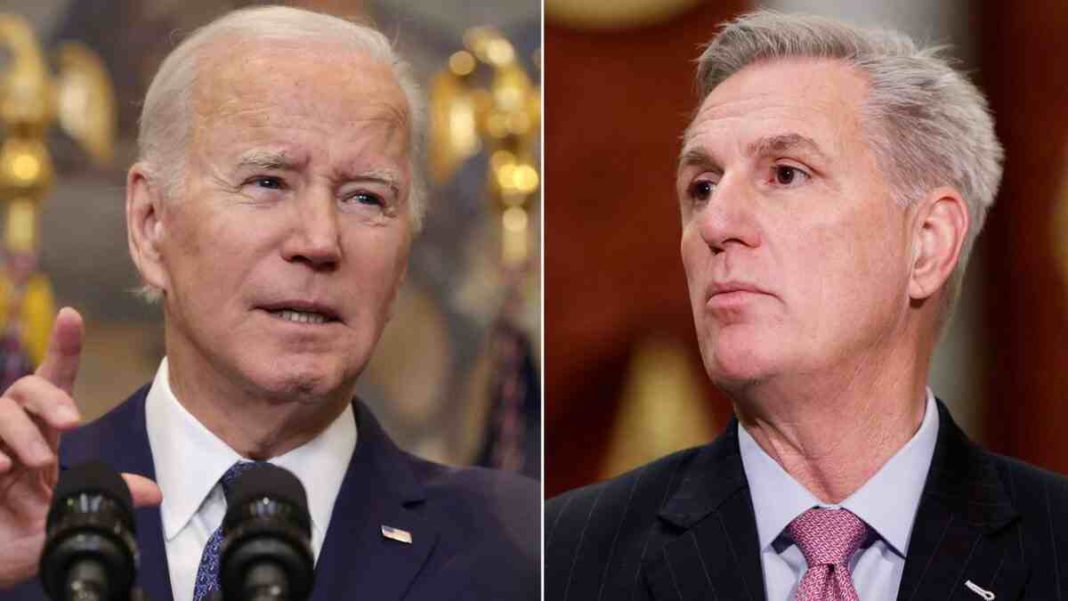UNITED STATES: Hard-right Republican senators have declared they will oppose a deal to raise the debt ceiling, highlighting the challenges Democratic President Joe Biden and senior congressional Republican Kevin McCarthy must overcome to get the package approved.
Ron DeSantis argues that the agreement does not go far enough to alter the fiscal trajectory, but supporters project that it will pass Congress before the US runs out of money to pay its obligations on June 5. Republican Representative Dusty Johnson also states that the agreement will pass.
Biden said that the bill would suspend the debt ceiling until 2025, allowing legislators to put the matter on hold until after the November 2024 presidential election. It would also curb some government expenditures over the next two years.
The House Rules Committee will take up the bill on Tuesday, and Rep. Chip Roy, a conservative, has declared his opposition to it. He believes it is not a good deal, with four trillion dollars in debt for only a two-year spending freeze and no policy changes.
Ralph Norman has spoken out against the arrangement, while McCarthy is unconcerned about its chances of passing the committee. Republican Senator Mike Lee has spoken out against the legislation in the Senate, which could indicate a contentious vote. Democrats are in control of the Senate by 51-49.
The majority of McCarthy’s fellow Republicans are expected to support the bill, while Hakeem Jeffries expects support from his side of the aisle. Raul Grijalva, a leftist, expresses disappointment with the bill’s modifications to environmental regulations, such as hastening approval procedures for energy projects and imposing job requirements for food aid programs.
White House officials say enforcement won’t be negatively impacted in the immediate future, but it could divert revenue away from the Internal Revenue Service. Financial markets have been encouraging, but investors are concerned that budget cuts could have an adverse effect on US GDP. Investors are also preparing for possible turmoil in the US bond market.
Republicans have proposed spending reductions to slow the growth of the national debt, estimated at $31.4 trillion. The pact would limit spending on domestic initiatives such as housing, border security, research, and other categories of “discretionary” spending while increasing military spending over the next two years.
Also Read: Joe Biden, McCarthy Reach Tentative Deal to Raise US Debt Ceiling



